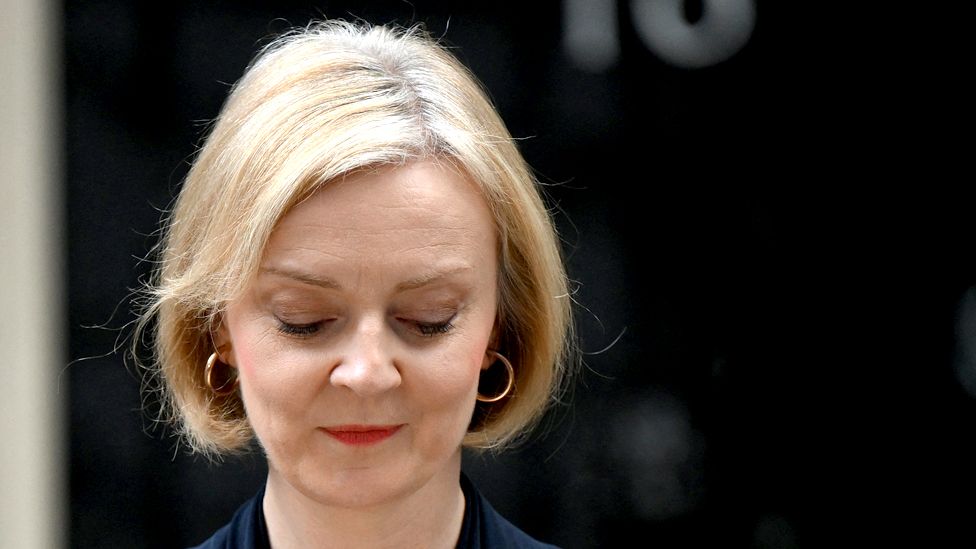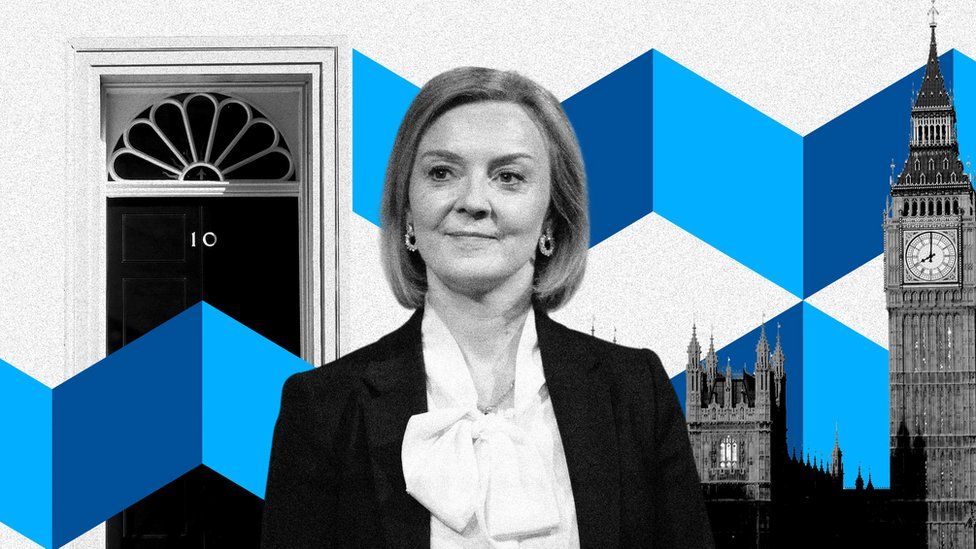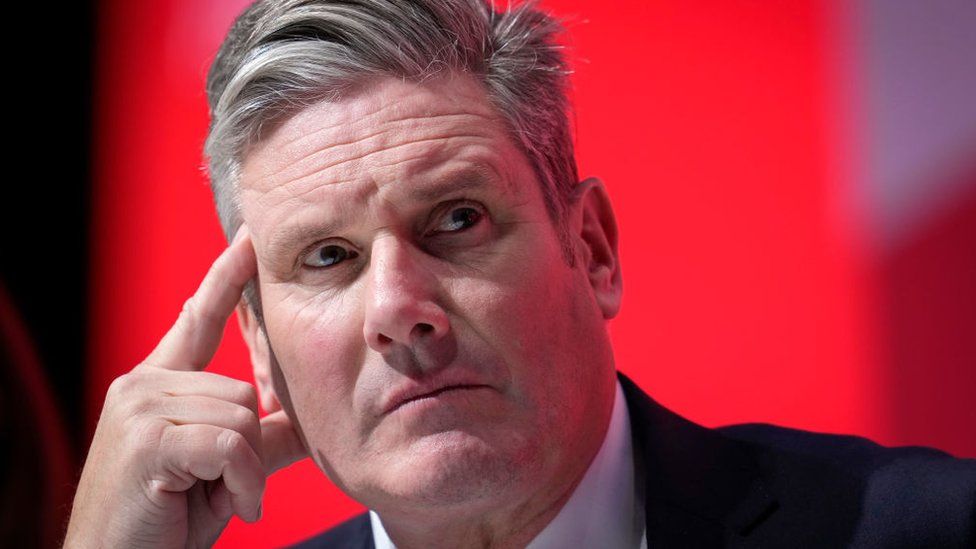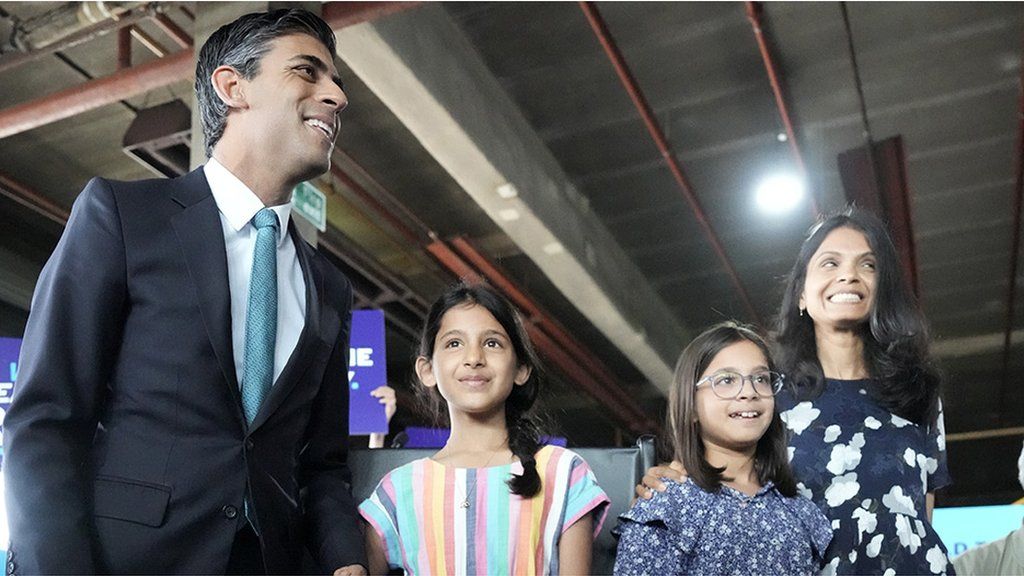
At just 42, Rishi Sunak is the youngest prime minister in modern times – taking the record held by his old boss David Cameron, who was 43 when appointed.
His rise to the top has been fast. He only became MP for Richmond in North Yorkshire in 2015 and joined the Cabinet in 2019.
“I showed up and people were surprised,” Mr Sunak said about being selected to represent Richmond, with its overwhelming white population. But his “Yorkshire values” of hard work resonated with people and he won them over by showing an interest in what mattered to them, he said.
Mr Sunak joined Boris Johnson’s Cabinet in 2019 as chief treasury to the secretary working with chancellor Sajid Javid, and his career rocketed from there.
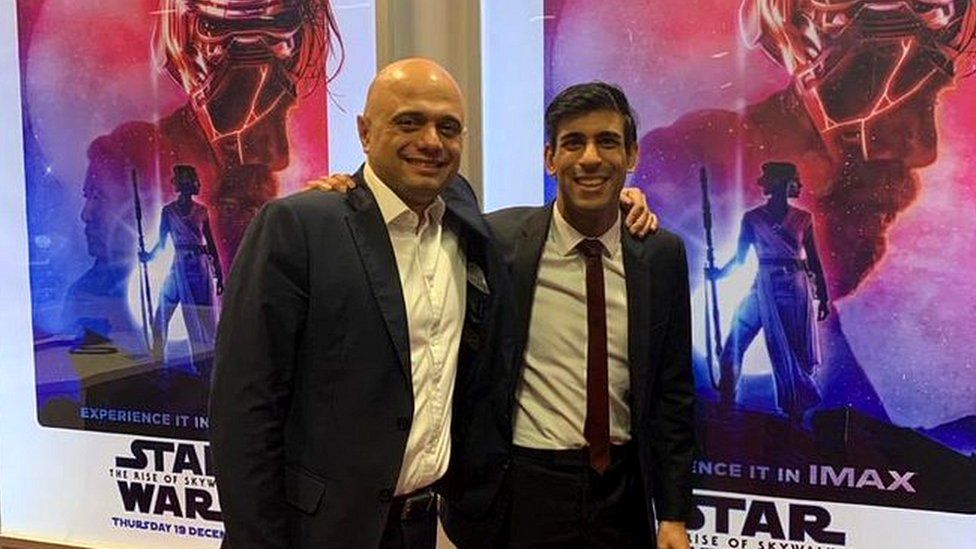
A self-confessed “huge Star Wars fan” with a sizeable collection of lightsabers, he once tweeted a photo of himself and his “Jedi Master” Mr Javid at a screening of The Rise of Skywalker in 2019. A few months later, the apprentice became the master when he replaced Javid as Chancellor, and was plunged into pandemic crisis planning and budgeting.
But in July, he resigned from the Cabinet, saying he felt his own approach to the economy was “fundamentally too different” to that of the PM. Just 16 weeks later, he has now become leader himself.
His appointment as PM came on the day millions celebrated Diwali, and as a practising Hindu he has said one of his proudest career moments was lighting ceremonial diyas (oil lamps) outside 11 Downing Street while Chancellor.
For quite a few people, this teetotal millennial – he had his 40th birthday during the first lockdown – appeared to be a reassuringly steady hand at the tiller as Chancellor.

Rishi Sunak: The basics
Age: 42
Place of birth: Southampton
Home: London and Yorkshire
Education: Winchester College, Oxford University, Stanford University
Family: Married to businesswoman Akshata Murty with two daughters
Parliamentary constituency: Richmond (Yorkshire)

When he pledged to do “whatever it takes” to help people through the pandemic in the spring of 2020 – and unveiled support worth £350bn – his personal poll ratings went through the roof.
But the UK continued to be buffeted by stormy economic weather, and Mr Sunak himself had to deal with the fallout of being fined by police for breaking lockdown rules in Downing Street in June 2020.
In April, some Conservative critics questioned whether the multimillionaire – thought to be the richest MP in parliament – had grasped the scale of the cost-of-living squeeze facing struggling households.
In that month, the finances of Mr Sunak and his family came under intense scrutiny, with the tax affairs of his wife Akshata Murty – the daughter of Narayana Murthy, Indian billionaire and co-founder of IT services giant Infosys – placed in the spotlight.
She later announced she would start paying UK tax on her overseas earnings to relieve political pressure on her husband.
But the scandal does not appear to have dented his popularity within Parliament. Newsnight’s political editor Nick Watt says his colleagues find him “very personable”, but also someone who is “very clear and certain in what he thinks”.
For example, in the run-up to the 2016 Brexit referendum – in which he campaigned to Leave – he was called into Downing Street and asked for his support to remain in the EU but he refused.
“He said ‘No, I think Brexit is the right thing to do’ – which is quite a thing for a newly-elected MP to say to Downing Street.”
Mr Sunak told the Yorkshire Post he believed leaving the EU would make the UK “freer, fairer and more prosperous”.
He said changing immigration rules was another key reason for his Leave vote: “I believe that appropriate immigration can benefit our country. But we must have control of our borders.”
This video can not be played
To play this video you need to enable JavaScript in your browser.
To become PM within seven years of entering politics is highly unusual. From 2001 to 2004, Mr Sunak was an analyst for Goldman Sachs and was later a partner in two hedge funds.
His supporters hope his eye for statistics and data will put the economy in safe hands.
Mr Sunak’s parents came to the UK from east Africa and are both of Indian origin.
He was born in Southampton in 1980, where his father was a GP, and his mother ran her own pharmacy.
“In terms of cultural upbringing, I’d be at the temple at the weekend – I’m a Hindu – but I’d also be at [Southampton Football Club] the Saints game as well on a Saturday – you do everything, you do both.”
In the interview he said he had been fortunate not to have endured a lot of racism growing up, but that there was one incident that had stayed with him.
“I was just out with my younger brother and younger sister, and I think, probably pretty young, I was probably a mid-teenager, and we were out at a fast food restaurant and I was just looking after them. There were people sitting nearby, it was the first time I’d experienced it, just saying some very unpleasant things. The ‘P’ word.”
“And it stung. I still remember it. It seared in my memory. You can be insulted in many different ways.”
However, he said he “can’t conceive of that happening today” in the UK.
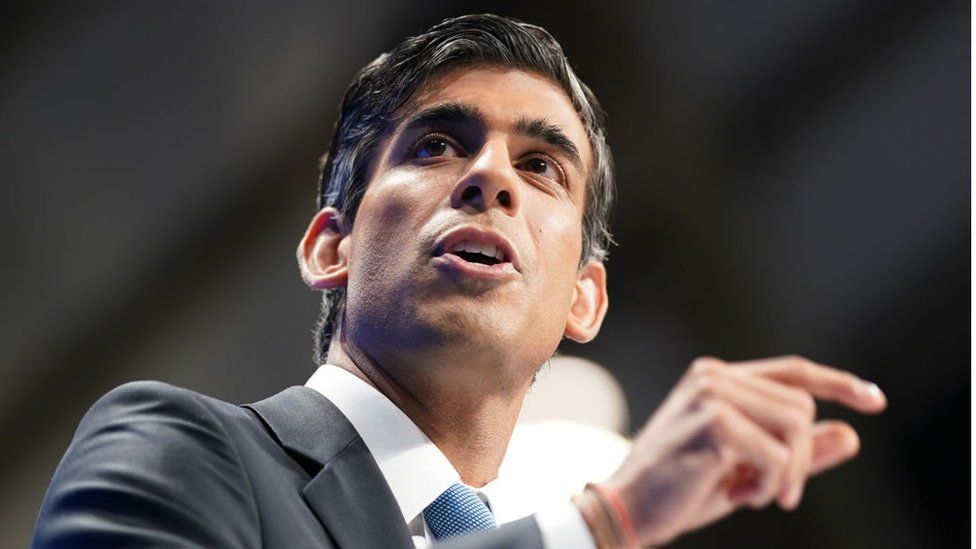
He attended the exclusive private school Winchester College – working as a waiter at a Southampton curry house during his summer holidays – then went to Oxford to study philosophy, politics and economics.
While studying for an MBA at Stanford University he met his wife. The couple have two daughters.
During the previous leadership campaign, he often mentioned his daughters in the context of climate change. Answering a question on climate change during a BBC TV debate, Mr Sunak said he took “advice from my two young daughters, who are the experts of this in my household”.
Published at Tue, 25 Oct 2022 09:14:33 +0000
